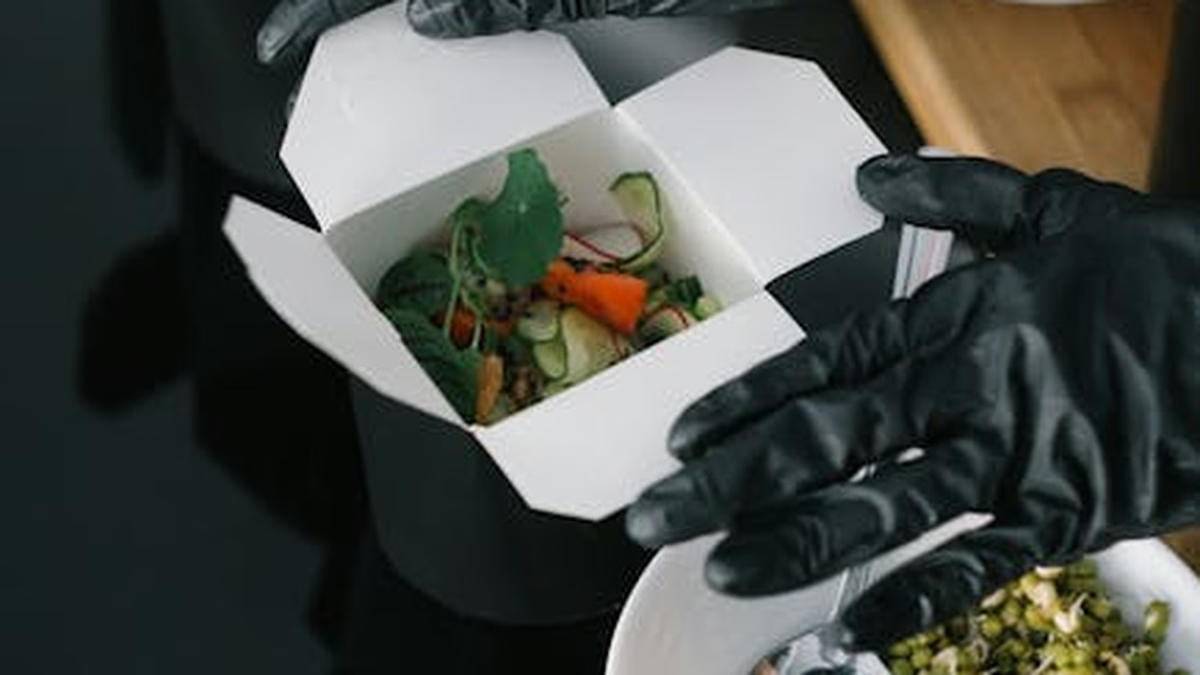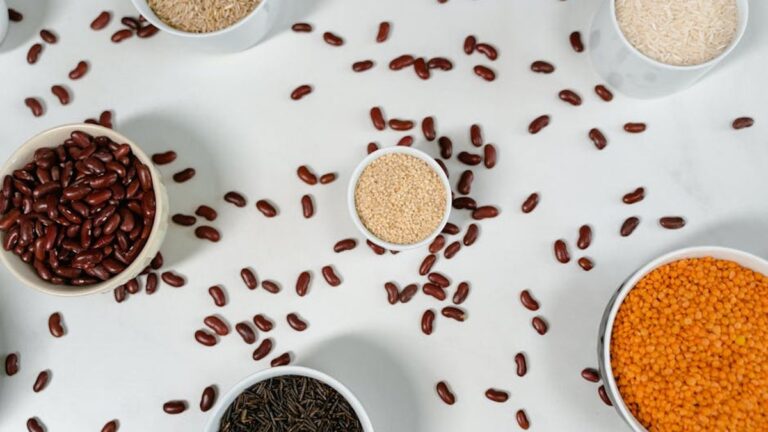Mindful Meal Prep for Busy Weekdays: Healthy Recipes & Time-Saving Strategies
Are you tired of grabbing unhealthy takeout after a long day at work? Do you dream of nutritious, home-cooked meals without the daily stress of cooking? The answer might be simpler than you think: Meal Prep. But not just any meal prep – mindful meal prep. This approach combines the practicality of preparing meals in advance with the benefits of mindful eating, leading to a healthier and more balanced lifestyle. Let’s dive into how you can conquer busy weekdays with smart and healthy meal prep recipes and time-saving strategies.
What is Mindful Meal Prep?
Mindful meal prep is more than just cooking a week’s worth of food on a Sunday afternoon. It’s a conscious and intentional approach to planning, preparing, and enjoying your meals. It involves being present during the entire process, from selecting ingredients to savoring each bite. It’s about connecting with your food and nourishing your body with intention.
Benefits of Mindful Meal Prep
Mindful meal prep offers a multitude of benefits, both for your physical and mental well-being:
- Improved Nutrition: You have complete control over ingredients and portion sizes, leading to a healthier and more balanced diet. According to the CDC, adults who prepare most of their meals at home tend to consume fewer calories, sugar, and fat.
- Reduced Stress: Knowing you have healthy meals ready to go eliminates the daily stress of deciding what to eat and cooking after a long day.
- Time Savings: By dedicating a few hours each week to meal prep, you free up valuable time during the week.
- Cost Savings: Eating out less frequently can significantly reduce your food expenses. A study by the USDA found that home-cooked meals are significantly cheaper than restaurant meals.
- Increased Awareness: Mindful meal prep encourages you to be more aware of your food choices and portion sizes, promoting healthier eating habits.
- Reduced Food Waste: Planning your meals in advance helps you buy only what you need, minimizing food waste.
Time-Saving Meal Prep Strategies for Busy Weekdays
The key to successful meal prep is efficiency. Here are some strategies to help you prep for a week in just a few hours:
Plan Ahead
The most crucial step is planning your meals for the week. Take some time to browse recipes, consider your dietary needs and preferences, and create a shopping list. This prevents impulse buys and ensures you have everything you need.
Batch Cooking
Focus on recipes that can be easily doubled or tripled. Cook large batches of grains like quinoa or rice, roast a tray of vegetables, and prepare a big pot of soup or chili. These can be used as building blocks for various meals throughout the week.
Utilize Your Appliances
Your slow cooker, Instant Pot, and oven are your best friends. Use them to cook meals while you’re busy with other tasks. For example, you can throw ingredients for a stew in the slow cooker in the morning and come home to a ready-to-eat dinner.
Prep Ingredients in Advance
Chop vegetables, marinate meats, and prepare sauces ahead of time. This significantly reduces cooking time during the week. Dedicate an hour or two on the weekend to just prepping ingredients.
Invest in Quality Containers
Having a good set of airtight containers is essential for storing your prepped meals. Choose containers that are BPA-free, microwave-safe, and easy to clean.
Freeze Strategically
Don’t be afraid to freeze portions of your meals. Soups, stews, and casseroles freeze particularly well. This is a great way to extend the shelf life of your meal prep and have backup meals on hand.
Healthy and Easy Meal Prep Recipes
Here are a few healthy meal prep recipes that are perfect for busy weekdays:
Quinoa Bowls with Roasted Vegetables and Chickpeas
This recipe is packed with protein, fiber, and nutrients. Roast your favorite vegetables (broccoli, bell peppers, sweet potatoes) with chickpeas and toss them with cooked quinoa. Top with a lemon-tahini dressing.
Chicken and Vegetable Stir-Fry
A quick and easy stir-fry is a great way to get your veggies in. Stir-fry chicken breast with your favorite vegetables (broccoli, carrots, snap peas) and a low-sodium soy sauce-based sauce. Serve over brown rice.
Lentil Soup
Lentil soup is a hearty and nutritious meal that’s perfect for meal prepping. It’s packed with protein, fiber, and iron. You can easily make a large batch in your slow cooker or Instant Pot.
Overnight Oats
For a quick and healthy breakfast, prepare overnight oats in individual jars. Combine rolled oats, milk (dairy or non-dairy), chia seeds, and your favorite toppings (berries, nuts, seeds). Let it sit in the fridge overnight and enjoy in the morning.
Mason Jar Salads
Layer salad ingredients in a mason jar, starting with the dressing at the bottom, followed by hard vegetables (carrots, cucumbers), protein (grilled chicken, chickpeas), and leafy greens at the top. This prevents the greens from getting soggy.
Storing Meal Prepped Food Safely
Proper food storage is crucial to prevent foodborne illnesses. Here are some tips:
- Cool food quickly: Don’t leave cooked food at room temperature for more than two hours. Refrigerate leftovers promptly.
- Use airtight containers: This helps prevent bacterial growth and keeps food fresh.
- Store food at the correct temperature: Keep your refrigerator at or below 40°F (4°C).
- Label and date containers: This helps you keep track of how long food has been stored.
- Follow the “first in, first out” rule: Use older meals before newer ones.
- Know when to toss: According to the FDA, cooked leftovers are generally safe to eat for 3-4 days when stored properly in the refrigerator.
Is Meal Prepping Cost-Effective?
Absolutely! While the initial investment in containers and ingredients might seem significant, meal prepping is generally more cost-effective than eating out or ordering takeout. By planning your meals and buying in bulk, you can save money on groceries and reduce food waste. Furthermore, you’re less likely to succumb to impulse buys or unhealthy cravings when you have a pre-planned, healthy meal ready to go.
Meal prep is more than just a trend; it’s a sustainable lifestyle change that can improve your health, save you time and money, and reduce stress. By incorporating mindful meal prep into your routine, you can nourish your body with intention and create a healthier and more balanced life, even on the busiest of weekdays. So, grab your containers, plan your meals, and get ready to experience the transformative power of quick meal prep!
Frequently Asked Questions
Q1: What are the benefits of mindful meal prep?
This important question is covered in detail in the sections above. Review the related content for comprehensive answers.
Q2: How can I meal prep for a week in just a few hours?
This important question is covered in detail in the sections above. Review the related content for comprehensive answers.
Q3: What are some healthy and easy meal prep recipes?
This important question is covered in detail in the sections above. Review the related content for comprehensive answers.
Q4: How do I store meal prepped food safely?
This important question is covered in detail in the sections above. Review the related content for comprehensive answers.
Boost Immunity This Fall!…
Q5: Is meal prepping cost-effective?
This important question is covered in detail in the sections above. Review the related content for comprehensive answers.
References & Further Reading
For more information about Mindful Meal Prep for Busy Weekdays: Healthy Recipes & Time-Saving Strategies, consider these authoritative sources:
-
Harvard Nutrition Source
Evidence-based nutrition guidance from Harvard researchers.
Source: harvard.edu -
Academy of Nutrition and Dietetics
Professional nutrition resources and dietary guidelines.
Source: eatright.org -
CDC Nutrition
Government nutrition recommendations and research.
Source: cdc.gov
These external resources provide additional scientific and medical insights.






